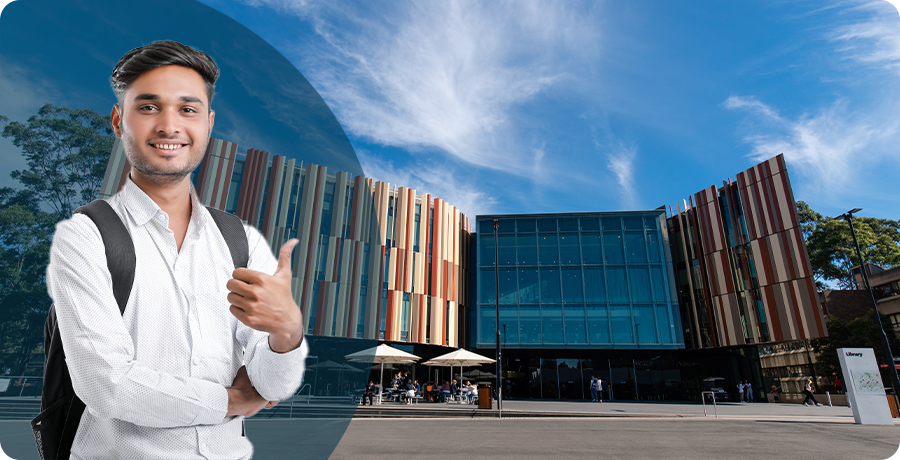Introduction to Education in Australia
Australia offers quality education, attracting students from all over the world. Its reputation for academic excellence, together with a vibrant multicultural environment, makes it a sought-after destination for those seeking a life-changing educational experience. Let's examine the various aspects of study in Australia, shedding light on key considerations for prospective students.
Understanding Free Education in Australia
While education in Australia isn't entirely free, there are distinctions to consider. Public/Government schools offer tuition-free education to Australian citizens and permanent residents. However, Catholic and independent schools typically charge attendance fees. Although public schools may cover tuition, additional expenses such as uniforms and textbooks may still apply.
Australia's Reputation for Educational Excellence
Australia offers high-quality education, which is evident by its consistently ranking among the world's top three. With skilled teachers, robust curriculum frameworks, and research facilities, students receive a comprehensive learning experience at all levels. The multicultural landscape further enriches the educational journey, fostering diversity and global perspectives.
Navigating the Cost of Studying in Australia
Australia has cheap universities and is also the right country for higher studies. Some relatively good universities in Australia offer top-quality education to international students. The cost of studying in Australia varies based on factors such as the course chosen, degree level, and the university. Tuition fees for international students can be between 20,000 to 45,000 AUD per year for bachelor's degrees and 22,000 to 50,000 AUD per year for master's and PhD degrees. Living expenses, accommodation, food, transportation, and healthcare are all factors that international students should consider contributing to the overall cost of studying in Australia.
Earning Potential for Students in Australia
Despite the costs associated with studying in Australia, students can earn a very high income. The average student salary in Australia is Rs. 41,20,000 per year. Entry-level positions start at Rs. 35,00,000 annually, while experienced workers can earn up to RS. 57,00,000 per year. Part-time work opportunities further help students' finances, enabling them to support themselves while pursuing their studies.
Accessing Healthcare in Australia
Australia boasts a comprehensive healthcare system, with government-funded services through Medicare. Australian residents are eligible for free or subsidized healthcare under Medicare, ensuring access to essential medical services. However, international students may need private health insurance to cover medical expenses during their stay in Australia.
Cost of Living Considerations
The cost of living in Australia varies depending on factors such as location and lifestyle preferences. On average, international students can expect to spend approximately Rs. 4,60,000 per month, excluding rent. Rent costs range from Rs. 5,70,000 to Rs. 6,60,000 inside the city center to Rs. 5,30,000 to Rs. 5,70,000 outside the city, highlighting the importance of budgeting and financial planning.
Top-Paying Jobs in Australia
Professionals in Australia enjoy lucrative career opportunities, with certain occupations commanding high salaries. Surgeons, anaesthetists, internal medicine specialists, financial dealers, and psychiatrists are among the top-paying jobs in Australia, reflecting the diverse opportunities available in various industries.
Comparing Study Costs: Australia vs. Canada
Comparing the costs of studying in Australia versus Canada reveals distinct differences. While Australia generally imposes higher tuition fees, ranging from A$15,000 to A$33,000 annually, Canada offers more affordable options, typically between CAD 10,000 to CAD 30,000 per year. Additionally, living expenses in Australia tend to be higher, averaging A$18,000 to A$22,000 annually compared to CAD 7,000 to CAD 9,000 in Canada. Both countries provide part-time work opportunities for students, and their education systems are renowned for quality. Ultimately, choosing between them depends on individual priorities, including lifestyle preferences, career aspirations, and financial considerations, underscoring the importance of thorough research into specific universities, programs, and available scholarships.
Employment Opportunities for International Students
Australia offers ample job opportunities for skilled professionals, including international students. While securing employment may require effort and persistence, the thriving job market and robust economy present numerous possibilities. With the right qualifications, experience, and networking, international students can find rewarding employment opportunities in Australia.
Pathways for Indian Students to Study in Australia
Indian students aspiring to study in Australia can explore various pathways, with the Australian Government offering student visas to facilitate their educational journey. The type of visa required depends on factors such as age, type of study, and duration of stay, providing flexibility and accessibility to Indian students seeking higher education opportunities in Australia.
Recognition of Indian Degrees in Australia
Under the Australia-India Education Qualification Recognition Mechanism, degrees attained in India are recognized in Australia and vice versa. However, certain professional qualifications such as engineering, medicine, and law may have specific requirements for recognition in Australia, necessitating thorough research and consultation.
Popular Courses for International Students
Australia offers a wide array of courses across diverse disciplines, catering to international students' interests and career aspirations. Science, engineering, architecture, computer science, and management education are among the popular courses sought after by international students in Australia.
Age Considerations for Studying in Australia
To be eligible for an Australian student visa, applicants must be at least 18 years old, with no upper age limit imposed. However, applicants must meet the specific requirements of their chosen course and institution, ensuring readiness for higher education irrespective of age.
Renowned Degrees in the Australian Context
Australia is renowned for its quality education in various fields. Degrees in engineering, business administration, computer science, medicine, and environmental science enjoy recognition both domestically and internationally.
English Proficiency Requirements for International Students
International students applying to Australian universities may need to demonstrate English proficiency through recognized IELTS, TOEFL, CAE, or PTE exams. These exams are a benchmark for assessing students' language proficiency and readiness for academic studies in English.
Gap Years and Study in Australia
While most universities in Australia accept a gap year or two between completing high school (12th grade) and starting university, longer gaps may require additional documentation to demonstrate readiness for higher education. Prospective students should consult their chosen institution to understand specific requirements and considerations.
Alternatives to IELTS for International Students
While IELTS is commonly required for admission to Australian universities, some institutions offer alternatives to demonstrate English proficiency. TOEFL iBT is another widely accepted exam that provides flexibility and accessibility to international students from diverse linguistic backgrounds.
Financial Considerations for Indian Students
Indian students planning to study in Australia should carefully consider financial aspects such as tuition fees, living expenses, accommodation costs, and miscellaneous expenses. Budgeting and financial planning are essential to ensure a smooth and successful educational journey in Australia. To secure an Australian student visa, you must demonstrate your financial capacity. As of October 1, 2023, the minimum required bank balance is AU$24,505 to cover annual living costs during your study period.
Opportunities for Permanent Residency after Study
Upon completing their studies, international students may have the opportunity to apply for permanent residency (PR) in Australia, provided they meet the required criteria. The Australia PR visa is granted based on a points-based system, considering factors such as education, work experience, English proficiency, and age. Graduates from Australian universities may enjoy certain advantages in the PR application process, paving the way for a promising future in Australia.
Embarking on an educational journey in Australia is a transformative experience that opens doors to endless opportunities and possibilities. With its world-class education system, diverse cultural landscape, and thriving job market, Australia offers a conducive environment for people.







.png)


.png)
.png)
